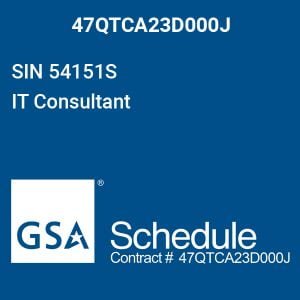While choosing a cloud service provider, you need to know the essential considerations to keep in mind. How do you figure out which cloud service provider is the right one for you? We have listed five key considerations that will help you make an informed decision.
Unlock the future of intelligent applications with our cutting-edge Generative AI integration services!
1. Cloud Services
You need to have a basic idea of your cloud computing needs. It will dictate the type of services you pick.
For example, if you need a powerful online customer relationship management (CRM) tool, Salesforce is quite handy. Similarly, online accounting management is easier with QuickBooks. In order to store online documents, photos, and videos, Dropbox is your best bet.
In case you require premium data storage, many cloud service providers have a wide range of general-purpose services, including on-demand access to software, applications, and virtual servers, as well as IT networking infrastructure. For this purpose, Amazon Web Services and Microsoft Azure are recommended.
2. Outsourcing
Businesses have varied requirements for the delivery of IT resources. Hence, a service that is viable for Business (A) may not offer the same convenience to Business (B).
For instance, if you host your critical servers on an offsite location, it’s not recommended to offsite the storage. Doing this can cause network latency issues between storage and the servers. On the other hand, if the business delivers file servers and emails via a centralized infrastructure from one single site, it’s easier to outsource it to a cloud service provider.
Similarly, if an organization has spent considerable money on an infrastructure for hosting in-house email servers, it’s commercially unfeasible to outsource this solution to a cloud service provider. Exceptions can be made if the intention is to co-locate the servers and storage.
-
 GSA HACS Principal Security Architect$153.15
GSA HACS Principal Security Architect$153.15 -
 GSA IT Consultant$81.12
GSA IT Consultant$81.12 -
 GSA Cloud Senior DevSecOps Consultant$143.62
GSA Cloud Senior DevSecOps Consultant$143.62
3. Cloud Management
Commonly, many cloud service providers don’t provide management services. Due to this reason, users who are new to the cloud, struggle to handle their cloud infrastructure projects.
Cloud hosting service providers, such as Cloud Computing Technologies (CCT), take a robust approach, offering cloud management that enables clients to place emphasis on building services and applications, where they can depend on CCT’s cloud computing architects to make sure that their cloud infrastructure is always available and reliable.
Security is a primary consideration here. If your company doesn’t have in-house expertise to manage or deploy cloud servers and software required to run the cloud safely, it’s recommended to invest in a managed cloud platform that can handle your security. Here’s what you need to ask to your cloud service provider:
- If my infrastructure faces an issue, will your support team help?
- What management services do you offer?
- What level of support do you provide?
- What is the average time taken to respond to my tickets?
4. Certifications and Compliance
Usually, all cloud service providers make claims about how their platform offers security and compliance. However, only third-party verification can authenticate these claims and provide complete ensunrace.
A reliable cloud service provider offers evidence of auditing and certification for industry-standard security and data center certifications.
Among the key certifications to consider are:
- HIPAA for storing healthcare data
- PCI DSS for processing and storing credit card data
- SAS70 Type II for data center controls
5. Service Level Agreements
Expert, privacy, and security support are necessary for any cloud infrastructure hosting client. But, it won’t offer much, if your organization’s infrastructure is not consistently available and reliable. This is an area where cloud service providers offer mixed results. Service level agreements indicate confidence a cloud service provider has in their infrastructure.
6. Location of Data Center
The security and location of the servers and data centers where your organization’s information will be stored are as essential as online security. Make sure that you don’t hire someone who has only a couple of servers in a room that could be easily compromised or accessed.
Ask your cloud service provider about their plan to protect their data center from storms, earthquakes, floods and fires. Also determine how their facility is safeguarded in terms of physical security .i.e. whether thieves could infiltrate the facility.
Probably, one of the significant indicators of a cloud service provider’s ability to tackle varied security threats is SSAE – Standards for Attestation Engagements 16.
7. Data Loss
In the rare scenario where your cloud service provider accidentally loses or deletes your critical data, you have to know how they plan to rectify the issue. Check the provisions in the provider’s SLA that resolve potential data losses. Will they compensate you for your loss? What data redundancies do they offer to mitigate data loss risks?
Also, do ask if they have experienced any major issues that have resulted in the loss of customer data.
Final Thoughts when Choosing a Cloud Service Provider
Choosing the right cloud service provider is not merely a choice – it’s an absolute necessity in today’s cutthroat business environment. Aim at partnering with a provider that offers and delivers a high standard of services without costing an arm and leg. These services must include 24/7 support with quick response and resolution.
In case you are looking for such a cloud service provider, get in touch with us. Our state-of-the-art infrastructure offers the highest level of hardware redundancy and security.
Further blogs within this cloud service provider category.

